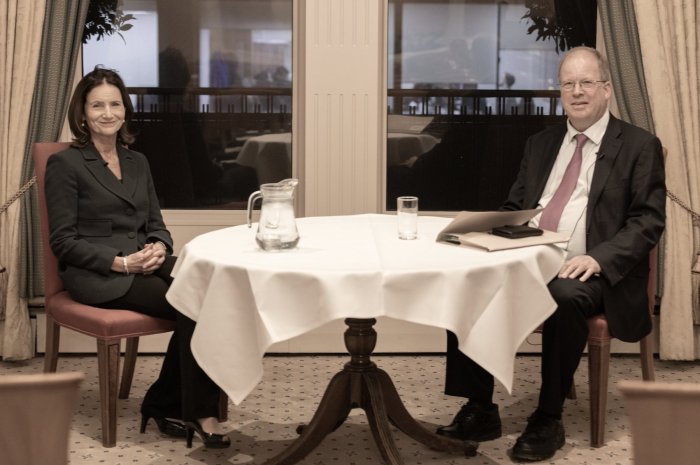Carolyn is a junior in college studying economics – Carolyn, a junior in college, has embarked on a stimulating academic path by pursuing a major in economics. This field of study, encompassing both theoretical and practical aspects, equips students with a comprehensive understanding of economic principles, their applications, and their impact on society.
Her coursework delves into microeconomics, macroeconomics, econometrics, and economic history, providing her with a solid foundation in the subject. As she progresses through her studies, she will have the opportunity to specialize in areas such as international economics, public finance, or development economics, aligning her interests with potential career paths.
College Major and Coursework

Carolyn’s major in economics provides her with a comprehensive understanding of the principles and theories that govern the production, distribution, and consumption of goods and services. Her coursework covers a range of topics, including microeconomics, macroeconomics, econometrics, and international economics.
Course Examples
- Microeconomic Theory
- Macroeconomic Theory
- Econometrics
- International Trade and Finance
- Public Finance
Career Paths
Graduates with an economics degree have a wide range of career options, including:
- Economist
- Financial Analyst
- Consultant
- Data Scientist
- Policy Analyst
College Experience

As a junior in college, Carolyn is immersed in a vibrant and intellectually stimulating environment. She attends lectures, participates in discussions, and completes assignments that challenge her critical thinking and problem-solving skills.
Challenges and Opportunities
The college experience presents both challenges and opportunities. Carolyn faces academic rigors, time management demands, and social adjustments. However, she also has access to resources and support systems, such as professors, advisors, and campus organizations, that help her navigate these challenges and maximize her opportunities.
Extracurricular Activities and Social Life
Beyond her academic pursuits, Carolyn is actively involved in extracurricular activities and social events. She participates in economics clubs, attends guest lectures, and volunteers in the community. These experiences enhance her social skills, leadership abilities, and understanding of the world outside the classroom.
Economic Trends and Impact: Carolyn Is A Junior In College Studying Economics

The current economic climate is characterized by high inflation, rising interest rates, and geopolitical uncertainty. These trends have a significant impact on Carolyn’s field of study and her future career prospects.
Economic Impact
Inflation erodes the purchasing power of consumers, which can lead to reduced demand for goods and services. Rising interest rates make it more expensive for businesses to borrow money, which can slow down economic growth. Geopolitical uncertainty creates volatility in financial markets and can disrupt global supply chains.
Career Prospects, Carolyn is a junior in college studying economics
These economic trends may affect Carolyn’s career prospects by influencing the demand for economists and the availability of jobs in different sectors. For example, a recession could reduce demand for economists in the private sector, while government spending on economic stimulus programs could increase demand for economists in the public sector.
Role of Economics
Economics plays a crucial role in shaping societal issues. Economists provide insights into the causes and consequences of economic problems, and their research helps policymakers develop effective solutions. For example, economists can analyze the impact of climate change on the economy and recommend policies to mitigate its effects.
Personal Growth and Development

College is a transformative period that fosters personal growth and development. Carolyn is developing her intellectual abilities, critical thinking skills, and problem-solving capabilities through her academic studies.
Networking, Internships, and Research
Carolyn is actively networking with professionals in her field, gaining valuable insights and building connections. She has also secured internships that provide her with hands-on experience and practical knowledge. Additionally, she is involved in research projects that allow her to apply her economic theories and methodologies to real-world problems.
Leadership Skills and Confidence
College offers opportunities for Carolyn to develop her leadership skills and confidence. She holds leadership positions in student organizations, participates in debates, and presents her research findings at conferences. These experiences enhance her communication, interpersonal, and teamwork abilities.
Career Planning and Preparation
Carolyn is actively preparing for her future career by exploring career options, developing her skills, and building her professional network.
Job Market for Economists
The job market for economists is competitive, but there is a growing demand for economists with strong analytical and quantitative skills. Carolyn is well-positioned for success in this field due to her academic qualifications and practical experience.
Employment Sectors
Economists are employed in a variety of sectors, including:
- Government agencies
- Financial institutions
- Consulting firms
- Non-profit organizations
- Research institutions
Resume Writing, Interviewing, and Professional Development
Carolyn is developing her resume, practicing her interviewing skills, and attending professional development workshops to enhance her marketability and prepare for the job market. She seeks feedback from professors, career counselors, and industry professionals to improve her job search materials and strategies.
Expert Answers
What career opportunities are available for economics majors?
Graduates with an economics degree can pursue careers in various sectors, including banking, finance, consulting, government, and academia. They may also work as economists, financial analysts, or policy advisors.
How can Carolyn prepare for a successful career in economics?
Networking, internships, and research experiences are crucial for building a strong foundation. Attending conferences, joining professional organizations, and actively engaging in economic discussions can also enhance her career prospects.